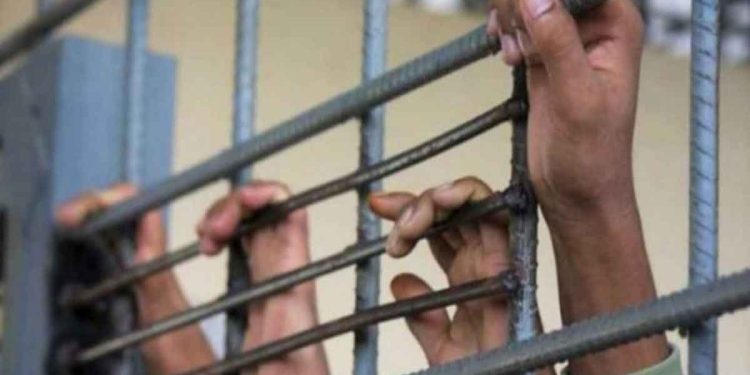In Ofer prison, the Israeli prison administration has imposed a series of collective punishments on Palestinian prisoners, including fines and the denial of visits.
Such collective punishment is one of several ongoing cases of abuse of Palestinian detainees in the prison, which are intended to pressure prisoners to cease their protests against administrative detention – detention without charge or trial – and restrictions in the prison itself.
Prisoners are protesting against measures introduced by the Israeli prison administration following six prisoners’ escape from Gilboa prison in September 2021. The six prisoners were subsequently re-imprisoned.
Yesterday, Tuesday 22 February, Ofer prisoners chose to boycott any medicine they were receiving, in protest against the Israeli occupation’s use of administrative detention. They demanded their own immediate release.
Administrative detainees have been boycotting the occupation’s courts for 54 consecutive days in protest against their arbitrary detention.
Early last month, administrative prisoners began a total boycott of all judicial procedures related to administrative detention, including judicial review, re-trials, and so on.
Administrative detention is detention without charge, trial, and even allowing the detainee or their lawyer the chance to inspect evidence. It is a clear violation of international law.
The highest number of such detentions by month was recorded in May 2021, which saw 200 Palestinians administratively detained. Approximately 60 administrative detainees and other prisoners subsequently initiated hunger strikes.
In January 2022, the number of Palestinian prisoners in occupation prisons reached approximately 4,500, 500 of whom are administratively detained.






























